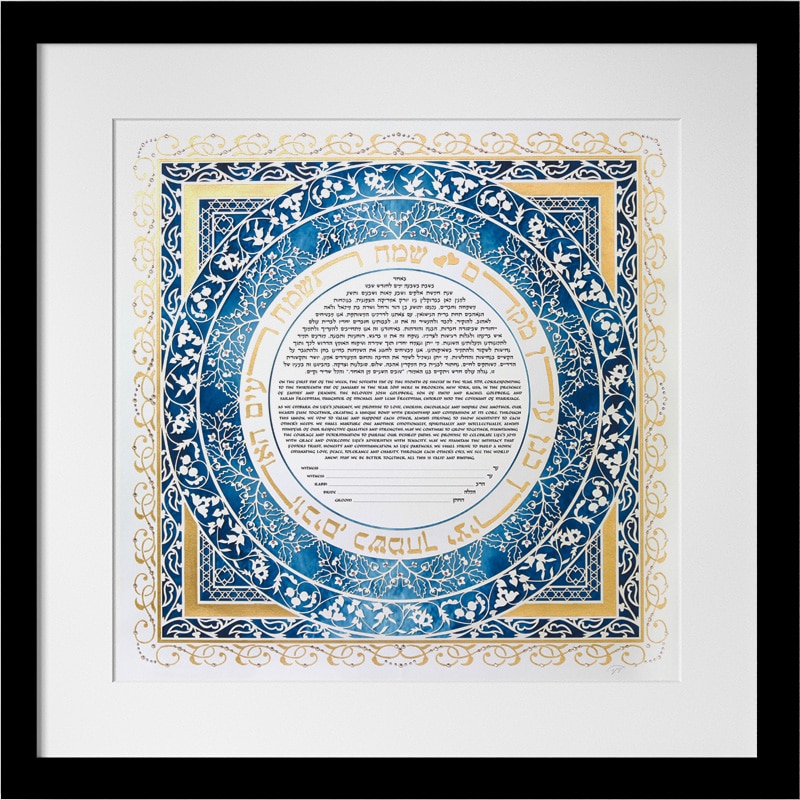All About Signing The Ketubah (Jewish Marriage Contract)
 The Ketubah is a Jewish marriage contract, and is considered an integral part of a traditional Jewish marriage. The Ketubah outlines the agreed upon rights and responsibilities of the groom, in relation to his bride, and it is most assuredly not a bill of sale. In modern practice, the Ketubah has no monetary value, is an important ritual, and usually uses modern texts that stipulate equality and love within the marriage. And, it is seldom enforced by civil courts, except in Israel.
The Ketubah is a Jewish marriage contract, and is considered an integral part of a traditional Jewish marriage. The Ketubah outlines the agreed upon rights and responsibilities of the groom, in relation to his bride, and it is most assuredly not a bill of sale. In modern practice, the Ketubah has no monetary value, is an important ritual, and usually uses modern texts that stipulate equality and love within the marriage. And, it is seldom enforced by civil courts, except in Israel.
The History of The Ketubah
The Ketubah or marital contract has been an essential part of Jewish weddings for many thousands of years. There are even mentions of the wedding contract in the bible, specifically stipulating how much a groom’s family would have to pay the bride’s family upon marriage. The earliest surviving historical Ketubah is from around 440 B.C.E and is written in Aramaic.
In some Orthodox communities around the world, the text hasn’t changed, and is still written in Aramaic. However, in nonorthodox communities, couples generally use more modern (English or Hebrew) texts that speak about equality and love within the marriage. It’s also fairly common these days for the bride and groom to take on writing the contract themselves, as the Ketubah has grown and evolved to fit every couple and every ceremony. It now happily includes LGBTQ+ and non-binary couples in Reform or Interfaith ceremonies.
Much like a prenuptial agreement, the Ketubah lays out details such as what a wife gets if there is a divorce or untimely death and what the husband promises to provide to his wife, and outlines a husband’s marital obligations to his wife, it also lists all the details of the wedding: the date, the name of the bride and groom, and more.
The Ketubah Ceremony
The signing of the Ketubah takes place in a ceremony before the official wedding ceremony under the chuppah. Some couples make this an intimate family-only affair while other couples, especially Orthodox couples, do the ketubah signing at the Chatan’s Tisch (the groom’s reception, which takes place before the chuppah) Some couples even opt to do the signing the day before the wedding in a private ceremony for close family and friends.
Once it is signed the Ketubah is read out loud at the ceremony, and after the wedding it is usually framed and displayed in the newlywed’s home.
Who Signs The Ketubah?
Surprisingly, in Orthodox Jewish weddings, the Ketubah isn’t signed by the bride and groom, and is instead signed by two witnesses, unrelated to the couple. The signers in Orthodox Jewish Ceremonies also must abide by Jewish law and be male; however, in modern or reform Jewish practices, the witnesses can be anyone the couple wants. In this instance it doesn’t matter whether they are male or female or observant or not. Some couples even choose to have more than two witnesses, and it’s common for the bride and groom to both sign their own Ketubah, signifying their lifelong commitment to one another. The Rabbi or officiant also signs the document.



